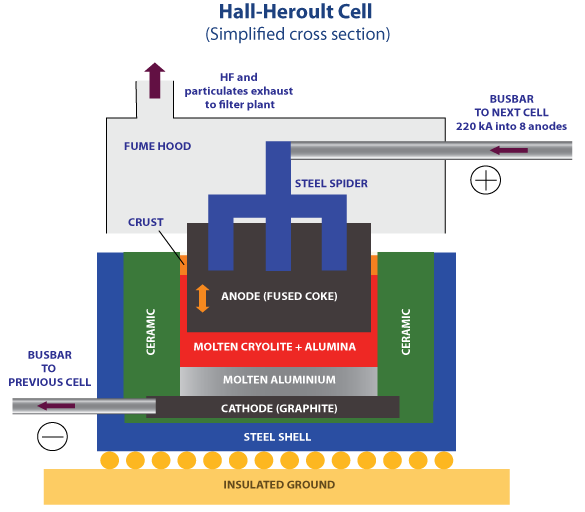Update: I originally started this post by claiming there was disagreement between me and the claims at Mommy Points and View from the Wing. I wish to retract that. I dislike their use of the words “free night” and “worth more” in a sentence together, even if they remain correct when they go on to say that a free night is worth more relative to points. But this post was never meant to attack either of them. I just wanted to provide a thought experiment for you guys, the readers, so you can learn to better value your points and miles now and in the future.
My comments were an introduction to the debate on how loyalty program awards change value, but it was unfair because those who believe they are worth more are using a relative measure of value and those who say they were worth less are using an absolute measure of value. Obviously, I’m in the absolute camp. If you’ll read on, nothing else has been edited, and I think you’ll agree that it stands on its own and does so without getting personal. End Update.
Before we get into issues of value, let me start by saying yes, I did pimp the Reserve card in my post on Wednesday. I did so for a different reason, though. I did not argue that the two free night certificates were any more valuable. All I said was that they were now the best option for getting a stay at an expensive property like the Conrad Koh Samui or Conrad Hong Kong. I’d rather use a free weekend night certificate than spend 90,000 points, and I’m sure you would, too. That’s different from saying the certificates actually became more valuable. More valuable relative to the points, perhaps, but not according to several other measures.
What Is a Free Night Worth?
So, let’s discuss value. Goods and services have value. When you barter, you exchange one good or service for another. Currency is similar because it’s a common unit of exchange. I will use the word “currency” sometimes in the rest of this post to make it easier to draw comparisons to an example using international currency exchange. I’ll also try to use real examples of goods and services. And I get to teach a little science. 😀
If you wanted to stay at the Conrad Koh Samui, for example, you would have to consider the value of four different currencies. Let’s assume we’re trying to get a weekend night for the sake of simplicity and because we are, after all, considering the value of a certificate that’s only good on weekends. Equivalent amounts of those four currencies used to be:
- One night at the Conrad Koh Samui (the thing you want)
- $600 US Dollars (the price of one room)
- 50,000 Hilton HHonors points (an alternative price)
- 1 free weekend night certificate (an alternative price)
These are all equivalent units. Some of them have more or fewer restrictions on their use, but to keep things simple you can exchange the cash, the points, or the certificate to get the free night.
After the program was devalued, a new number of points was assigned to the cost of a free night. Here are the new equivalent units:
- One night at the Conrad Koh Samui
- $600 US Dollars
- 90,000 Hilton HHonors points
- 1 free weekend night certificate
Did the Conrad Koh Samui suddenly become an even more expensive floating palace in the sky? No. Did the US government default on its debt? Not yet. Did Citi start doubling the number of free weekend night certificates with every card application? Fat chance. None of those currencies changed value.

All that happened is that Hilton required 40,000 more points to use that one option for a free night. This means that particular currency became less valuable. Gary replied to my comment on his post yesterday saying he was talking about relative value, not absolute value. Well, I’m talking about relative value, too. And relative to dollars and free night certificates, the cost of a free night at the Conrad Koh Samui didn’t change. Relative to points, and points only, things changed for the worse.
Consider an alternative example, like exchanging Euros, US Dollars, Yen, and Zimbabwean Dollars. In this case, Hilton HHonors points are the Zimbabwean Dollars. The fact that Zimbabwe has runaway inflation doesn’t make the Euros, US Dollars, or Yen any more valuable — unless you have the unfortunate luck to be stuck in Zimbabwe and need to buy imported bread. It just makes Zimbabwean Dollars less valuable tomorrow relative to yesterday. The US Dollars, Euros, and Yen experience typically experience little or no fluctuation.
The Invention of the Hall-Héroult Process
Let’s use another analogy with actual goods and services, to bring this closer to the hotel example. Consider the state of the world before the Hall-Héroult process was invented, a time at which aluminum was extracted through an expensive chemical process and was more valuable than gold. In fact, the builders of the Washington Monument capped the obelisk with an aluminum pyramid to show off.
- One night at the Conrad Koh Samui (the thing you want)
- $600 US Dollars (the price of one room)
- 0.4 ounces of aluminum (an alternative price)
- 0.5 ounces of gold (an alternative price)
After the invention of alternating current by Nicola Tesla and the subsequent use of cheap electricity to separate aluminum from bauxite ore using the Hall-Héroult process, aluminum became something you throw away in the trash (or hopefully recycle).
- One night at the Conrad Koh Samui
- $600 US Dollars
- 1,000 pounds of aluminum
- 0.5 ounces of gold
The fact that aluminum is now worth much less does not change the value of the Conrad Koh Samui. It does not change the value of a US Dollar. And it does NOT change the value of gold, our stand-in for the free weekend night certificate. All it does is change the price of a free night when you prefer to pay with aluminum, because the price goes up when value goes down.

What would it take to make free night certificates more valuable? You would need to be able to convert a certificate to points, and that number of points would have to be more than the number required for a free night. For example, if a free night certificate could be exchanged for 90,000 HHonors points, enough for a top-tier property, you would then be free to redeem those points for more than one night at a cheaper property. But Hilton and Citi didn’t do this, so I find it hard to argue that anything has made free night certificates worth more than they were.
Why Free Nights Might Be Worth Less
There are several reasons to be concerned the free night certificates are actually worth less. Maybe only one or two apply in your case. Maybe none. But overall, they should be cause for concern.
Free weekends are worth less if you can’t afford free weekdays. These free weekend nights are great. But what about Monday night? With more expensive points redemptions, it might be more difficult to afford a longer award stay. Your ability to use the free night certificate is more limited, even though it has the same terms for redemption.
Free weekends are worth less if there’s more competition. Although most hotel programs don’t have blackout dates on their award stays, there are still capacity restrictions. You usually have to book into a standard room. I predict more people will be seeking these free night certificates for their ability to use them at more expensive hotels. They will also be competing to use them at more expensive hotels. Availability could decrease.
Free weekends are worth less if you don’t have status. Everyone who gets a free weekend night should have Gold status because you can’t get a certificate without holding a credit card that promises free status. However, I predict fewer people will seek Diamond status by spending $40,000 a year or staying multiple nights with Hilton. There’s just less incentive when the points you earn in the process are devalued. Are the perks of Diamond vs. Gold status that much different? Maybe not for some people, but they may be to you.

